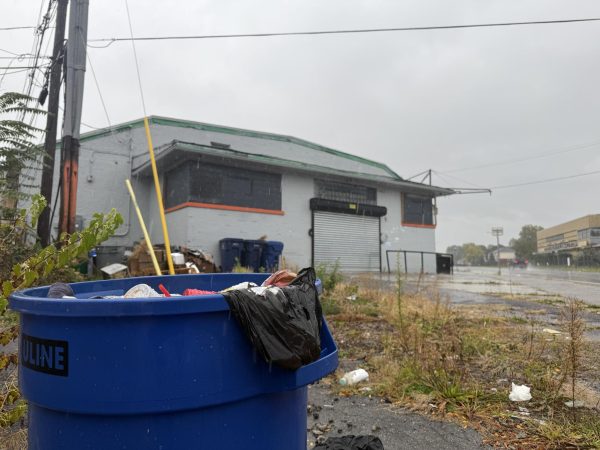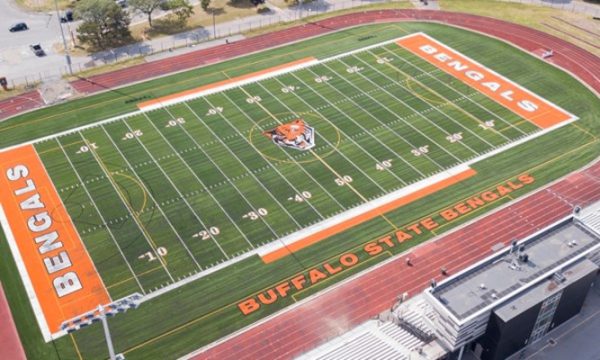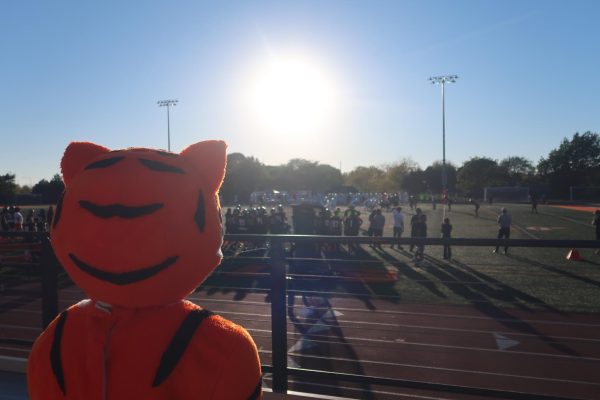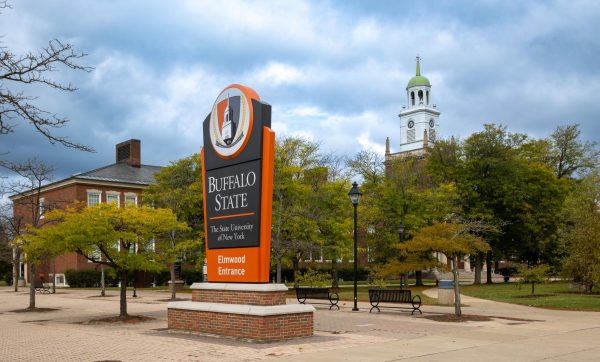Alcohol Awareness week impacts students on dangers of drinking

University Police Officer Scott Richards walks student through a mock sobriety test.
SUNY Buffalo State celebrated National Collegiate Alcohol Awareness Week last week with events designed to educate students about the risks associated with drinking alcohol.
“What happens when students choose to drink can have lifelong or life-ending consequences,” Paula Madrigal, coordinator for Health Education Programs, said.
Madrigal said many students don’t understand the risks they take when they drink. She said the events were designed to educate them about those risks.
According to Madrigal, the events were also meant to inform students about the resources available on campus. She said many students don’t know about groups like Al-Anon, a support group where the families and friends of alcoholics can meet to sharetheir experiences.
Alcohol Awareness Week began during Bengal Pause onTuesday with the Bengals Against Drunk Driving information table. Students were invited to spin the USG Wheel, which was divided into categories including Alcohol and Health, Fact or Fiction and Numbers. They were asked trivia questions based on which category the wheel landed on.
Meanwhile, student activists handed out pamphlets about the dangers of alcohol and the different support programs available at Buffalo State.
“Sometimes students need help to make informed decisions,”said James Willen, a health and wellness senior and peer educator with Weigel Health Center.
According to Willen, 75 percent of students who drink are binge drinkers. One of the goals of Alcohol Awareness Week is to bring that number down.
Joella Lukwiya, a public administration masters student, also distributed information at the BADD table.
“Three out of five students drink alcohol,” Lukwiya said. “It would be nice to get that number down to one, at least at Buffalo State.”
An Alcohol Awareness Fair took place from 10 a.m. to 4 p.m. Thursday in the Union Quad. The BADD information table and USG Wheel were set up again. University Police DepartmentOfficer Scott Richards also invited students to take mock sobriety tests while wearing “drunk goggles.”
According to Richards, the goggles are designed to throw off a person’s depth perception and equilibrium. He said that many students were surprised at how impaired the goggles made them.
“It was really difficult,” said Joshua Lee, a psychology junior who took the test. “It was hard to look at one spot. Trying to keep your balance on top of that is near impossible.”
The fair also featured Arrive Alive’s drunk driving simulator.
Students wore virtual reality goggles and got behind the wheel of a stationary car. The goggles altered their perception to different degrees based on their simulated BAC.
They were then told to drive around a virtual town, complete with stoplights, other cars, and jaywalkers. A television set up outside the car allowed observers to see what the driver saw in real-time. The higher the simulated BAC, the harder it was for students to drive correctly.
After the simulation, participants were invited to sign a pledge book swearing not to drink and drive.
The final event of Alcohol Awareness Week was a presentation by Elizabeth Obad, the president of the Erie County chapter of Mothers Against Drunk Driving. The event began at 7 p.m. in Bulger South.
Dean of Students Charles Kenyon introduced Obad, who spoke about friends and family who were killed in alcohol-related carcrashes.
“We never use the word accident,” Obad said. “When alcohol is involved, it’s a choice.”
Obad said that crashes are the most frequently committed violent crime in the country.
She told the audience about her son, George, a sergeant in the Marine Corps who completed two tours in Iraq. He was killed in 1994 in a motorcycle crash, shortly before he was scheduled to deploy again. George was sober, but the driver of the bike was drunk.
Obad said that the week before he died, she made George promise to come home one last time before he left for his next tour.
“George did come home like he promised,” Obad said. “He came home in a cargo hold.”
Obad said that the best advice she could give to young people who go out to drink is to make plans beforehand about how they will get home.
“Are you going to die for a drink tonight?” Obad said. “Will alcohol be your last taste of life?”
Madrigal was hopeful about the way the week’s events might affect students.
“Even if this message resonates with just one or two students, we’ve done our job,” Madrigal said. “We’d love to reach hundreds, but it really only takes one.”
Alcohol Awareness Week was sponsored by Weigel Health Center, Alpha Epsilon Phi sorority, and the United Students Government.
E-mail: [email protected].









